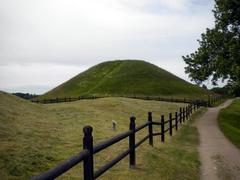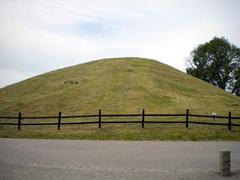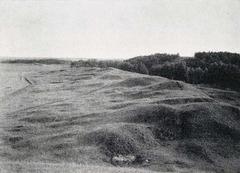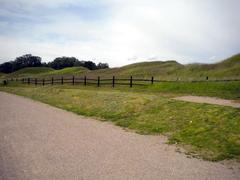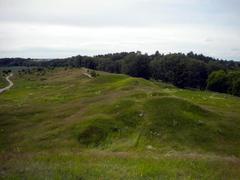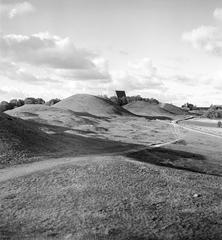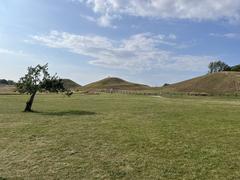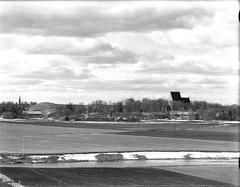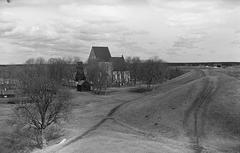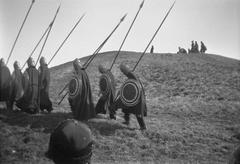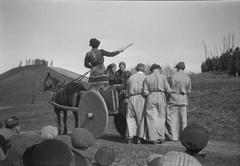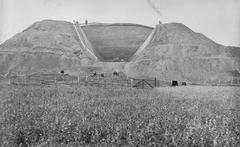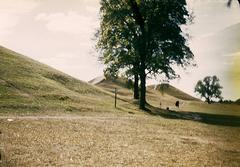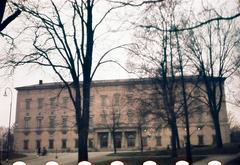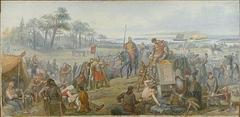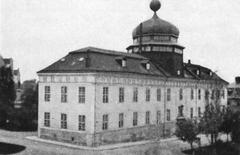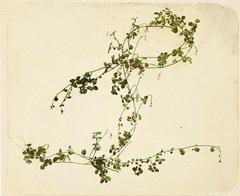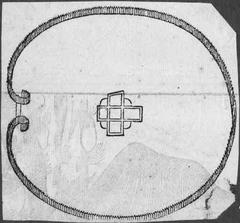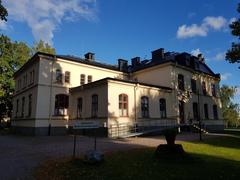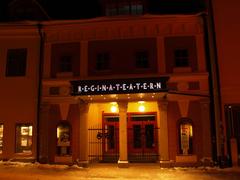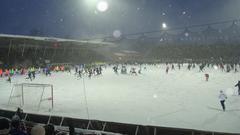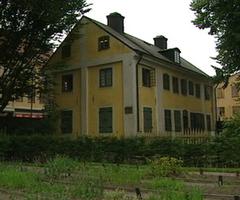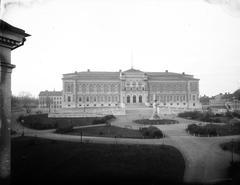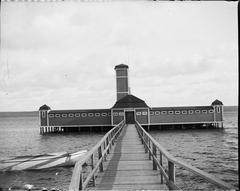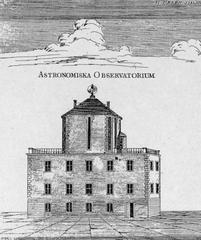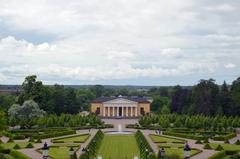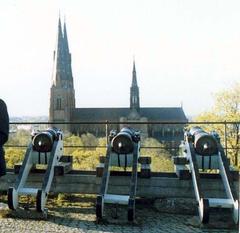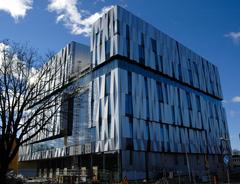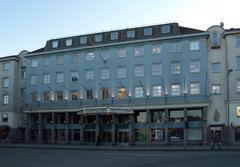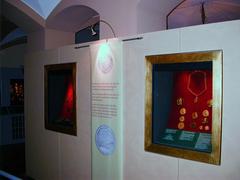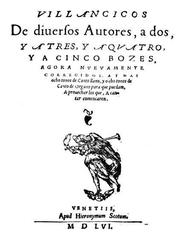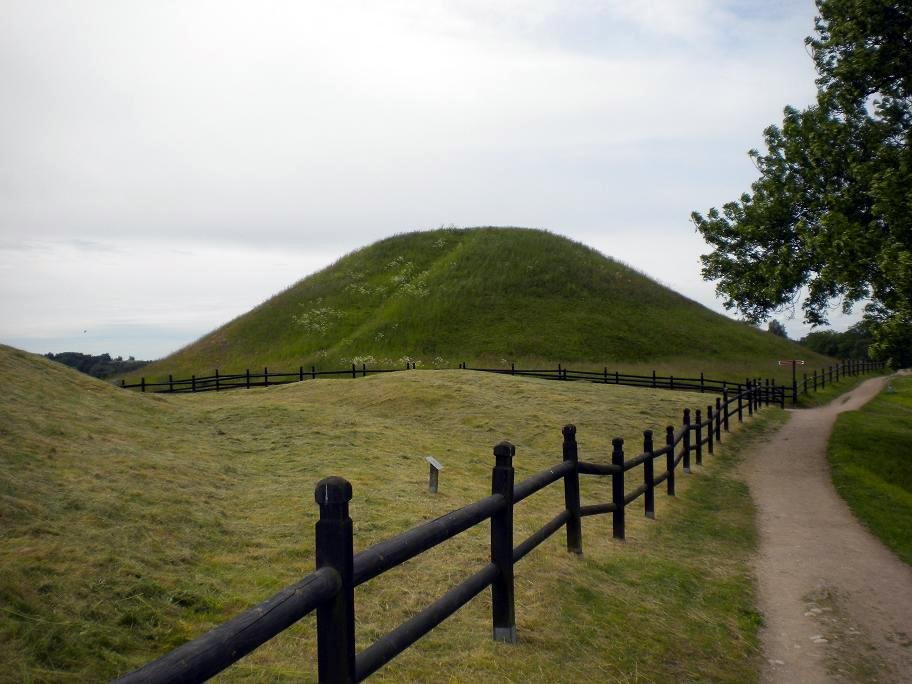
Old Uppsala Archaeological Area: Visiting Hours, Tickets, and Historical Sites in Uppsala
Date: 14/06/2025
Introduction
Old Uppsala (Gamla Uppsala) is one of Sweden’s most historically significant destinations, offering a window into more than two millennia of Scandinavian culture, religion, and power. Situated just north of modern Uppsala, this archaeological area features monumental Royal Mounds, a medieval church built atop sacred pagan grounds, and a museum showcasing exceptional Viking and Iron Age finds. As the epicenter of ancient Swedish royalty and Norse spirituality, Old Uppsala continues to captivate visitors with its rich blend of archaeological remnants and living heritage.
Whether you are a history enthusiast, a family seeking a memorable outing, or a traveler interested in Viking lore, this guide provides all the essential details for planning your visit. Discover practical information on opening hours, tickets, accessibility, and travel tips, and learn about the fascinating historical and cultural significance of Old Uppsala.
For planning assistance, visit the official Destination Uppsala and Visit Sweden websites.
Table of Contents
- Introduction
- Historical Overview
- Visiting Old Uppsala
- Travel Tips
- Facilities and Practical Information
- Frequently Asked Questions (FAQ)
- Conclusion & Call to Action
- Sources
Historical Overview
Early Settlement and Prehistoric Roots
Archaeological evidence shows that Old Uppsala’s significance stretches back over two thousand years, with occupation dating to the Nordic Bronze Age, Roman Iron Age, and Germanic Iron Age. At its height, the area contained between 2,000 and 3,000 burial mounds, of which about 250 remain today—a testament to its enduring importance as a center for ritual and community (The Crazy Tourist).
The Royal Mounds and the Yngling Dynasty
The three monumental Royal Mounds—Eastern, Middle, and Western—are the site’s most iconic features, dating to the 5th and 6th centuries CE. According to Norse sagas, these mounds are the resting places of legendary Yngling kings, potentially linked to the god Freyr. Excavations have revealed cremated remains, weapons, jewelry, and luxury goods, reflecting the high status and far-reaching trade connections of Old Uppsala’s elite (Destination Uppsala; The Viking Herald).
Religious and Political Center of Pagan Sweden
Old Uppsala served as the heartland of pagan worship and Swedish political life from the 6th century onwards. Medieval sources, including Adam of Bremen, describe a grand pagan temple here, hosting elaborate festivals and sacrifices to gods such as Odin, Thor, and Freyr. The Thing of all Swedes (Tingshögen) was also held here, where chieftains and free men gathered to legislate and administer justice.
Transition to Christianity and Medieval Transformation
The 12th-century Gamla Uppsala Church marks the transition from Norse paganism to Christianity, built near or atop the ancient temple site. In 1164, Old Uppsala became the seat of Sweden’s first archbishopric, symbolizing the shifting religious landscape and blending old traditions with new Christian practices (The Crazy Tourist).
Decline and the Rise of Modern Uppsala
Over time, shifts in trade, politics, and geography led to the rise of modern Uppsala as the primary regional center. Old Uppsala’s role became increasingly ceremonial and historical, but the area remained a symbol of national heritage.
Archaeological Discoveries and Modern Research
Excavations have uncovered remarkable finds, including Viking Age funeral garments with Arabic inscriptions and over 90 boat burials at the nearby Valsgärde cemetery. The Gamla Uppsala Museum presents these discoveries with interactive displays and immersive virtual reality experiences (Destination Uppsala).
Visiting Old Uppsala
Opening Hours and Tickets
- Royal Mounds & Outdoor Areas: Open 24 hours, year-round. Free access.
- Gamla Uppsala Museum: Typically open Tuesday–Sunday, 12:00–16:00 (seasonal variations apply). Check the official site for current opening times.
- Gamla Uppsala Church: Open daily, generally 9:00–17:00, but hours may vary during services or special events.
- Disagården Open-Air Museum: Open seasonally, mainly from late spring to early autumn.
Tickets:
- Outdoor sites (mounds, church grounds): Free.
- Museum: Around 80–100 SEK for adults; discounts for children, students, and seniors. Tickets can be purchased on-site or online.
Guided Tours and Events
Guided tours—available in English and Swedish—are offered during the summer and for special occasions. Tours typically cover the burial mounds, church, and museum, providing in-depth insights into mythology, archaeology, and history. Booking in advance is recommended (GetYourGuide; Veronika’s Adventure).
Annual events include the Medieval Market, Viking reenactments, and Midsummer celebrations, with crafts, music, and living history performances (The Tourist Checklist; All Events in Uppsala).
Accessibility
- Public Transport: Bus 2 from Uppsala Central Station stops at Kungshögarna, near the mounds (Amber Everywhere).
- Cycling: Uppsala is Sweden’s best cycling city; bike lanes connect the city center to Old Uppsala (15–30 minutes).
- Car: Free parking near the museum and church, though it may fill up during peak times.
- Mobility: The museum and café are wheelchair accessible; paths around the mounds are well-maintained but may be uneven or muddy, especially after rain.
Main Attractions
Royal Burial Mounds (Kungshögarna)
The three great burial mounds, each up to 11 meters high and 70 meters across, are open for exploration at all hours. Visitors can walk around and climb the mounds for panoramic views. Interpretive signs provide archaeological context and connect the landscape to Norse mythology (Destination Uppsala; The Viking Herald).
Gamla Uppsala Church
This 12th-century Romanesque church, built on the site of the legendary pagan temple, features medieval wall paintings, rune stones, and a peaceful churchyard. Guided tours are available and recommended for deeper historical understanding (Veronika’s Adventure).
Gamla Uppsala Museum
Near the mounds, the museum presents artifacts, interactive exhibits, and virtual reality experiences that bring Viking Age and Iron Age life to vivid reality. Information is available in Swedish and English. Family tickets and children’s activities make it suitable for all ages (Destination Uppsala).
Rune Stones and Archaeological Remains
Scattered throughout the area, rune stones reflect the transition from Norse paganism to Christianity. Archaeological remains include longhouses and ship graves, further emphasizing the site’s importance as both a political and religious hub (Forbes).
Disagården Open-Air Museum
A short walk from the burial mounds, this museum recreates 19th-century rural Swedish life with historic buildings and costumed interpreters (Destination Uppsala).
Odinsborg Restaurant and Café
Located by the burial mounds, Odinsborg serves Swedish classics and Viking-inspired dishes in a Norse-style building. It is open daily and offers both indoor and outdoor seating (Destination Uppsala).
Travel Tips
- Best Time to Visit: Late spring to early autumn for mild weather and cultural events.
- Dress Appropriately: Wear comfortable shoes and bring layers, as the landscape is open and can be windy.
- Plan Ahead: Check opening hours for the museum and church, particularly during holidays or special events.
- Combine Activities: Pair your visit with a walk or bike ride along the Eriksleden trail, which links Uppsala’s city center with Old Uppsala (Visit Sweden).
- Photography: The mounds, church, and open fields offer excellent photo opportunities, especially at sunrise or sunset.
Facilities and Practical Information
- Restrooms: Available at the museum and Odinsborg café.
- Gift Shop: Museum shop offers books, souvenirs, and crafts.
- Picnic Areas: Several tables throughout the site; outdoor seating at Odinsborg.
- Accessibility: The museum and café are accessible; burial mounds and certain paths may be uneven.
- Dogs: Allowed on outdoor grounds on a leash; not permitted inside the museum or church.
- Language: Staff generally speak English; signage is bilingual.
Frequently Asked Questions (FAQ)
Q: What are Old Uppsala’s visiting hours?
A: The outdoor archaeological area is open 24/7 and free to access. The museum and church have specific opening hours—check their websites for the latest updates.
Q: Are guided tours available?
A: Yes, guided tours in Swedish and English are offered during peak season and special events. Booking ahead is recommended.
Q: Is Old Uppsala suitable for families?
A: Absolutely. The museum offers interactive exhibits and workshops for children, and the open site is ideal for family exploration.
Q: Is the site wheelchair accessible?
A: The museum and café are accessible. Paths around the burial mounds are generally maintained but can be uneven.
Q: How do I get to Old Uppsala from central Uppsala?
A: Take bus number 2 from Uppsala Central Station to Kungshögarna, or enjoy a scenic bike ride along marked trails.
Q: Do I need to buy tickets to visit the burial mounds?
A: No, outdoor areas are free. Museum admission requires a ticket.
Q: Can I bring my dog?
A: Yes, dogs are welcome on a leash in outdoor areas.
Conclusion & Call to Action
Old Uppsala is a captivating destination that brings Sweden’s ancient past to life. From the imposing Royal Mounds and medieval church to the interactive museum and vibrant cultural festivals, the site offers a truly immersive experience for visitors of all ages.
To get the most out of your visit:
- Plan your trip during late spring or summer for the best weather and activities.
- Download the Audiala app for guided audio tours and augmented reality experiences.
- Consult the official Destination Uppsala guide and Visit Sweden’s Uppsala page for up-to-date visitor information.
Step into the footsteps of kings, walk among sacred mounds, and discover the enduring legacy of Scandinavia’s most storied archaeological landscape.
Sources
- Destination Uppsala - Royal Mounds
- Destination Uppsala - Tips for Trips Outside Uppsala City Center
- The Crazy Tourist - Best Things in Uppsala
- Amber Everywhere - What to See in Uppsala
- GetYourGuide - Uppsala County Summer Activities
- Visit Sweden - Uppsala
- The Viking Herald - Mounds of Old Uppsala
- Veronika’s Adventure - Best Guided Tours in Uppsala
- Forbes - A Day Trip to Uppsala
- The Tourist Checklist - Things to Do in Uppsala
- All Events in Uppsala - June
- Live the World - 2 Days in Uppsala
- Secret Attractions - Hidden Historical Sites in Uppsala
